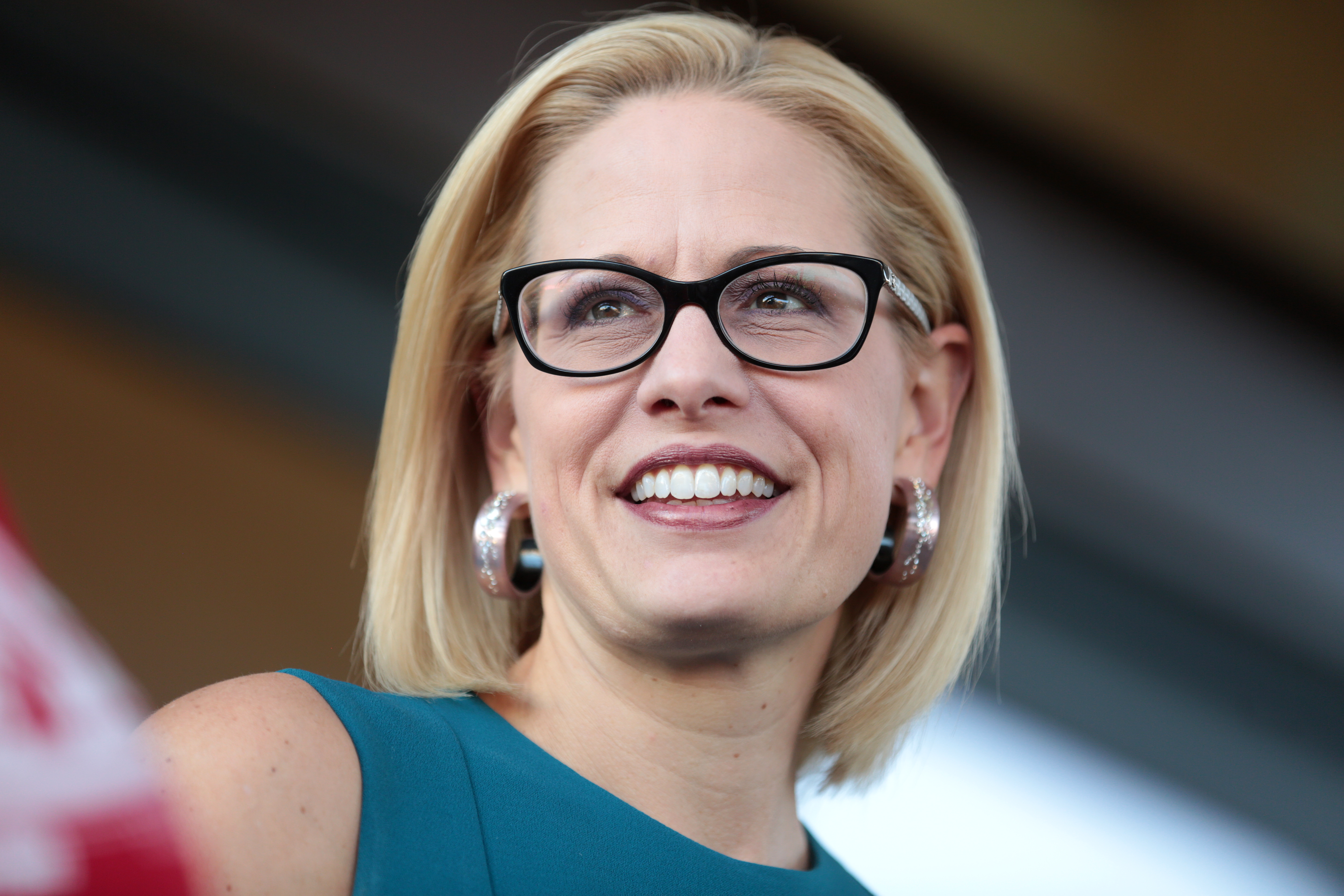Sinema Not Acting According to Net Neutrality Script
The smarter way to stay on top of the multichannel video marketplace. Sign up below.
You are now subscribed
Your newsletter sign-up was successful
WASHINGTON — Net neutrality activists have targeted new Democratic Sen. Kyrsten Sinema of Arizona as a potential obstacle to restoring Title II-based net neutrality rules, though there are a number of other obstacles beyond that.

When Sinema, the first woman elected U.S. senator in that traditionally red state, won the vacated seat of Republican Jeff Flake in November 2018, The New Yorker said it could have been the biggest Democratic victory of the Trump era. But net neutrality activists sure weren’t seeing it that way when it came to the Democrat-backed Save the Internet Act, which has passed the House but needs not only all the Democrats in the Senate but some Republican votes as well.
Last month, Sinema teamed up with Sen. Roger Wicker (R-Miss.), chairman of the Senate Commerce Committee, to form a net neutrality working group focused on “crafting a net neutrality proposal to encourage innovation, boost investment, and close the digital divide.”
Sinema has been working with Republicans on various issues, including joining them to oppose the Green New Deal, voting to confirm Attorney General William Barr when the vast majority of Democrats did not, and most on point for communications watchers, working with Republicans on compromise net neutrality legislation, which is tantamount to heresy in the net neutrality activist playbook.
Activist groups like Demand Progress and numerous Hill Democrats have branded Republican attempts at bipartisan legislation as Trojan Horse efforts to preserve deregulation. So far, those efforts all have excluded common-carrier status under Title II of the Communications Act from the equation, as well as the general conduct standard that expands the Federal Communications Commission’s authority over internet-service conduct beyond bright-line rules.
Demand Progress is suggesting Sinema has jumped on that horse, and was trying to raise money by targeting her for not having signed onto the Save the Internet Act. The group said she is the only holdout among Senate Democrats, which it called totally unacceptable.
“It took more than a year of hard work and grassroots organizing to convince the House of Representatives to pass the Save the Internet Act,” the group said in a fundraising email. “If we’re going to pass the bill in the Senate, we can’t afford to have a Democrat working against us.”
The smarter way to stay on top of the multichannel video marketplace. Sign up below.
Even with Sinema, prospects for the Democratic-backed ISP reregulation efforts remain slim to none. That’s because more than the two Republicans who broke ranks in the last Congress would need to do so to pass a similar effort, then President Donald Trump would need to sign it. While predicting the president’s actions is a difficult assignment, he is on record supporting the deregulation done under his FCC chairman, Ajit Pai, and has been advised by his administration to veto the attempt to restore the rules.
Unless Democrats and Republicans are able to compromise, the issue is likely to continue to see-saw in the courts, as it has for more than a decade. Currently, a three-judge panel of the U.S. Court of Appeals for the D.C. Circuit is considering a challenge to the Save the Internet Act, which eliminated the 2015 Open Internet rules the Democrats’ bill would restore.
Contributing editor John Eggerton has been an editor and/or writer on media regulation, legislation and policy for over four decades, including covering the FCC, FTC, Congress, the major media trade associations, and the federal courts. In addition to Multichannel News and Broadcasting + Cable, his work has appeared in Radio World, TV Technology, TV Fax, This Week in Consumer Electronics, Variety and the Encyclopedia Britannica.

